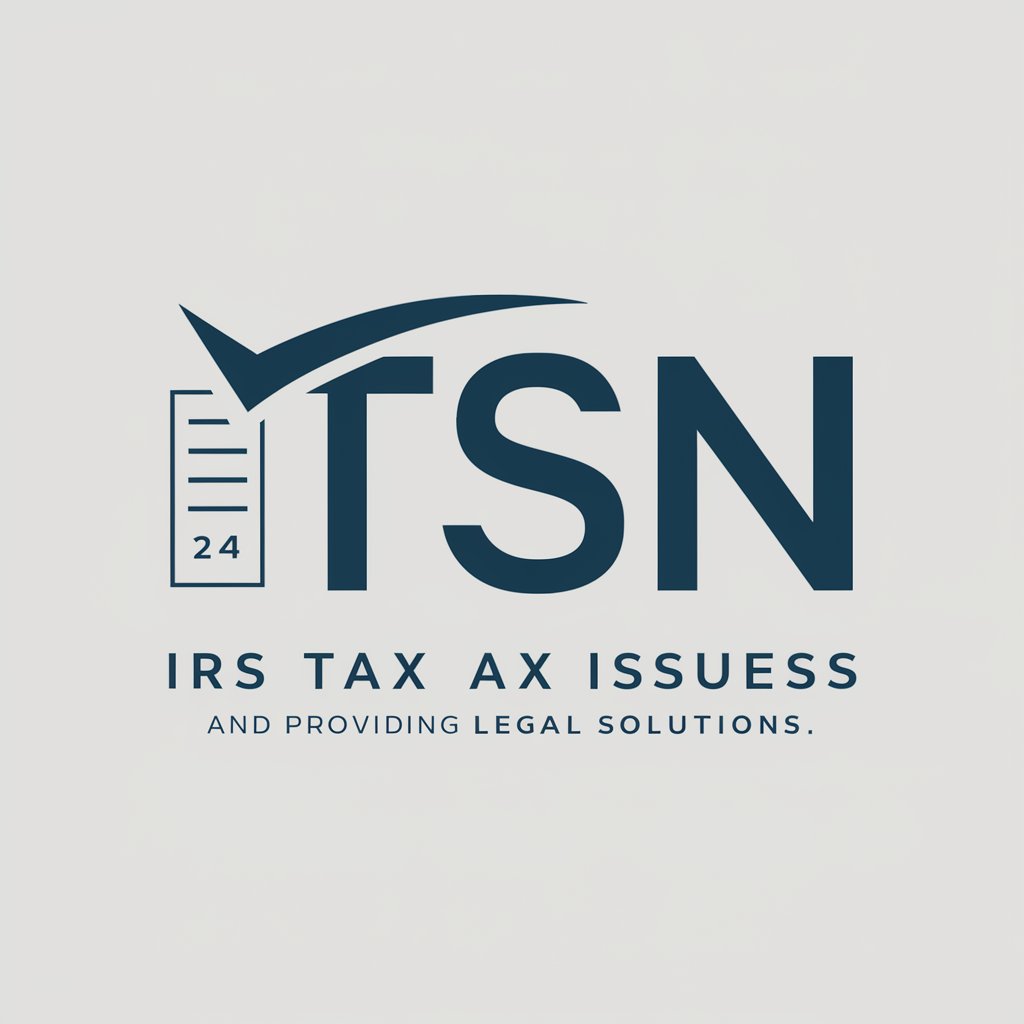6 GPTs for Tax Updates Powered by AI for Free of 2026
AI GPTs for Tax Updates refer to advanced artificial intelligence models, specifically Generative Pre-trained Transformers, tailored for tasks in the taxation domain. These tools leverage natural language processing to provide real-time tax-related updates, interpret complex tax legislation, and offer personalized tax advice. Their relevance lies in the dynamic nature of tax laws and the necessity for professionals and individuals to stay informed on the latest changes. By integrating GPTs, users access a specialized tool adept at navigating the intricate tax landscape, ensuring compliance and optimizing tax strategies.
Top 6 GPTs for Tax Updates are: Expert Fiscal France,Federal Tax Law Tutor,CA Guru (India),TSN,Tax Helper,Tax Guru
Expert Fiscal France
AI-Powered French Tax Expertise

Federal Tax Law Tutor
Empowering Tax Law Mastery with AI

CA Guru (India)
Empowering CA Aspirants with AI

TSN
Empowering Tax Solutions with AI

Tax Helper
AI-powered Personal Tax Assistant

Tax Guru
Navigating Tax Complexity with AI

Key Attributes of Tax-Focused AI Tools
AI GPTs for Tax Updates stand out for their adaptability across various tax-related tasks, from basic query responses to in-depth analysis of tax reforms. Core features include real-time updates on tax laws, personalized tax planning advice, and the ability to interpret and explain complex tax regulations in layman's terms. These tools also support technical queries, offer web searching capabilities for the latest tax news, and can generate documents or reports. Their advanced data analysis can identify tax-saving opportunities, making them invaluable for financial planning.
Who Benefits from Tax-Specific AI Innovations
The primary beneficiaries of AI GPTs for Tax Updates encompass a broad spectrum, including tax professionals, accountants, financial advisors, and individuals seeking to navigate tax obligations efficiently. These tools are designed to be accessible to users without technical expertise, offering intuitive interfaces and plain-language explanations. For developers and tech-savvy users, they provide APIs and customization options to integrate AI capabilities into specialized tax software or financial systems.
Try Our other AI GPTs tools for Free
Auditing Practices
Explore how AI GPTs transform Auditing Practices with automation, advanced analytics, and custom solutions, revolutionizing the efficiency and accuracy of audits.
Harassment Claims
Discover how AI GPTs for Harassment Claims revolutionize the management and resolution of harassment issues with advanced, tailored AI solutions.
Hiring Insights
Discover how AI GPTs for Hiring Insights revolutionize recruitment with data-driven strategies, enhancing decision-making and efficiency.
Compliance Guide
Discover how AI GPTs for Compliance Guide revolutionize regulatory adherence, offering tailored, up-to-date advice and automated compliance checks accessible to all.
Leadership Building
Discover how AI GPTs for Leadership Building can transform your leadership skills with tailored learning experiences, real-time feedback, and interactive modules designed for all levels.
Technology Upskilling
Unlock the potential of tech upskilling with AI GPTs. Tailored learning paths, real-time support, and integration capabilities empower both novices and experts.
Further Exploration into AI-Driven Tax Solutions
AI GPTs for Tax Updates represent a fusion of technology and taxation, providing a user-friendly interface that simplifies tax compliance and planning. These tools are not just reactive but proactive, offering insights and strategies to navigate the tax landscape efficiently. Their integration into existing systems underscores their versatility, making them a cornerstone in the digital transformation of the tax sector.
Frequently Asked Questions
What are AI GPTs for Tax Updates?
AI GPTs for Tax Updates are specialized artificial intelligence models designed to provide real-time information, advice, and analysis on tax-related matters using natural language processing.
How can these AI tools help with tax planning?
These AI tools offer personalized advice, highlight tax-saving opportunities, and provide updates on the latest tax laws to assist in effective tax planning and compliance.
Can non-experts use AI GPTs for tax-related queries?
Yes, these tools are designed with user-friendly interfaces that allow non-experts to easily obtain tax information and guidance in simple language.
How do these AI models stay updated with tax laws?
The models are continuously trained on the latest tax regulations and updates from reliable sources to ensure the information provided is current and accurate.
Are there customization options for developers?
Yes, developers have access to APIs and other tools to customize and integrate the AI capabilities into existing tax software or financial systems.
Can AI GPTs generate tax-related documents?
Yes, these AI tools can generate a variety of tax-related documents, including reports, summaries, and tax planning suggestions, tailored to individual or business needs.
Is the tax advice provided by AI GPTs reliable?
While AI GPTs offer guidance based on the data they are trained on, it's always recommended to consult with a tax professional for official advice, especially for complex situations.
How do AI GPTs for Tax Updates handle complex tax legislation?
These AI tools use advanced algorithms to interpret and explain complex tax legislation in a way that's understandable to users, helping to demystify intricate tax laws.